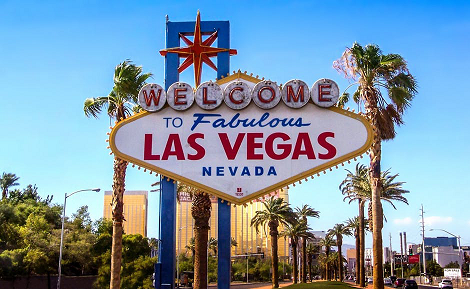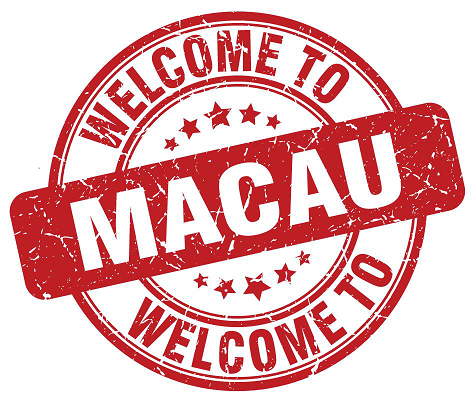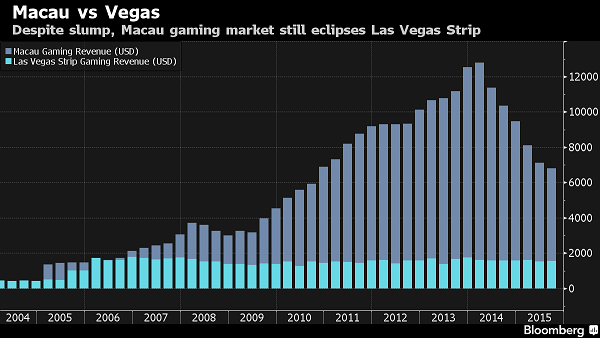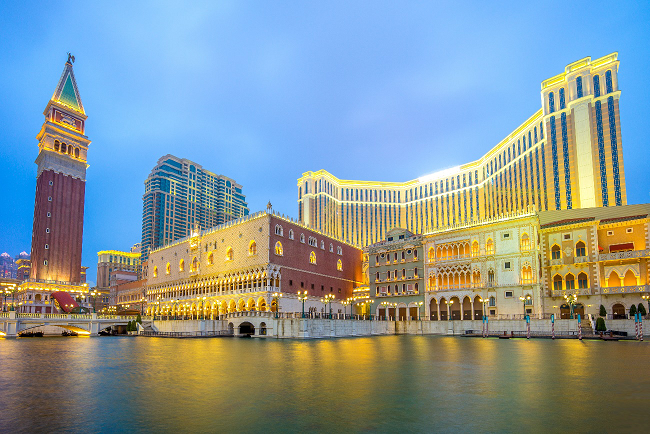

We'll start this article with a few seemingly inalienable truths and it's down to you to work out which one is no longer true:
1. Wembley is the home of world football
2. Athens is the spiritual home of the modern Olympiad
3. Las Vegas is the home of world gambling
The one inalienable truth in that list that is categorically wrong is number 3. Las Vegas is no longer the home to world gambling - it has been comprehensively overtaken by new kid on the block Macau. For decades the dusty city in the Nevada desert has been synonymous with gambling, attracting millions of foreign tourists every year.
While it may still be synonymous with gambling in popular culture, Macau has consistently outranked Vegas it in the popularity stakes recently. Perhaps in 20 years' time, Macau will be the scene of 'The Hangover 15' starring an ageing cast of Bradley Cooper, Zach Galifianakis and Ed Helms.
But, all joking aside, is the shift in power definite? What's making Macau more popular? Can Las Vegas fight back? Read on to find out.
Viva Las Vegas
Vegas has been the quintessential gambling hotspot since the 1940s. And there's no doubt it's still popular - with an incredible 39 million visitors to the city last year. There's a reported average occupancy rate of 88.6% according to tourist board figures - meaning that hotels are not struggling to fill their rooms, and an average room rate of $125.97 keeps it more than reasonable for gamblers of all types to stay a few days.
So what's the problem? Its 39 million visitors is down on the year before - and the Vegas Strip casinos reported a 3.2% drop in gambling revenues.
While the decline of Vegas is clear - what's up for debate is the reason for it.
The rise of online casinos

online gambling
Here's one possible explanation. For decades Las Vegas was almost the only place in the US to go and gamble freely and legally, therefore large swathes of gambling enthusiasts would make the pilgrimage to Sin City.
Following widespread legalisation of gambling in many countries across the world, the true need to visit Las Vegas has diminished. Online casino gambling has also managed to capture a large share of the market that simple no longer needs to visit land-based casinos.
While online gambling is currently only legal in four US states, there's evidence that the government is softening its stance due to the Supreme Court's ruling on sports betting earlier this year. The likelihood of online gambling being completely legalised would undoubtedly hit Vegas hard. A key case in point is in the UK, where it now accounts for one-third of all gambling revenue and is the largest single industry within the sector.
And it's quite clear why people are more drawn to online gambling. Not only are their favourite casino games available from the comfort of their own home or if they're on the move, but the games themselves are more engaging and immersive than ever. That's right - gamers can now interact with real-life croupiers, linked up via video and audio, wherever they're playing. It brings the human element that was previously missing from the online offering.
While Vegas tourists spend an arm and a leg for the privilege of playing roulette in a Vegas casino, all they really need to do is find a reputable casino online and they can enjoy realistic gambling experience by playing live roulette with real dealers.
Land-based casinos fighting back
There is a real fear of the domino effect of online gambling legalisation amongst a handful of American states currently. Sheldon Adelson, one of the biggest players in the Las Vegas casino industry, is leading efforts to halt the legalisation of online gambling in the US.
Whilst his reasons for opposing online gambling seem to be altruistic on the surface, there is a feeling that his stance is based purely on self-interest rather than the greater good.
Adelson recognises the threat that online gambling poses to the prosperity of Las Vegas and is vehemently opposed to anything that could take away from the profits of his own casinos. He's one of President Trump's biggest donor's, so he holds a lot of influence - however, no one can deny the advance of virtual gambling operators.
Why is Macau growing in popularity?

Macau now boasts the world's largest gambling revenue - $33 billion in 2017, which greatly outstrips the $6 billion reported in Vegas.
The former Portuguese colony that forms a small speck on the southern coast of China is the only place in the vast country where gambling is legal. The tiny peninsula has cashed in on that, housing 35 casinos within 8 square kilometres - but why is it overtaking Vegas in popularity?
A different vibe

In Macau, gamblers can make their selection between around 40 different casinos. The Venetian is one of the most eye-catching. Built to look like its Vegas namesake, it's the world's largest casino - at a staggering 550,000 sq. ft. - and has a hotel with almost 3,000 luxury suites. It's perhaps no wonder that 75,000 people a day pay the Venetian a visit - that's half of all Macau's tourists.
If you walk into a casino in Macau you'll be struck by the near silence. It is all very refined and hushed, there are no wailing noises emanating from slot machines, no inebriated stag dos whooping and hollering manically.
Macau is very much the place to go for the seasoned, refined gambler. It's an upmarket version of Vegas and it appeals to those who have been put off Vegas by the tacky, cheapness of it.
Plus, for many tourists, gambling may be the main reason behind their visit to Las Vegas, but others are also looking to make the most of their trip culturally. Las Vegas is a relatively new city and has little to none of its own culture - imitations of famous world monuments litter the strip.
Macau however has a rich history, thriving culture and beautiful architecture which fulfil the needs of the gambling tourists with a penchant for new experiences.
High rollers in the Far East
To many, Las Vegas is a gurning monument of rampant American consumerism, nothing more than a gaudy den of inequity characterised by its nickname - Sin City. Macau is the complete antithesis to Vegas in that regard. While people have been flocking to Vegas for many years, Macau is a relatively new phenomenon.
Importantly, it sits within a hugely different socioeconomic context to Vegas. It's one of the only places for wealthy Chinese gamblers and VIP gamers to have a flutter (apart from, say, Singapore) and the amounts they wager on games like baccarat and roulette tends to be higher than your average gambler visiting Vegas, which appeals to mass market tourists who simply don't have as much money.
Summary
It's easy to see casinos in Vegas and Macau as going head-to-head for the attentions of gamblers across the world. However, many casino operators have covered both bases. Las Vegas Sands and MGM to name just two have all cashed in on the popularity of Macau, opening imitations of their signature Las Vegas casinos in the former Portuguese colony.
Obviously their move into Macau has driven tourism to the peninsula which has indirectly impacted on tourism figures in Las Vegas.
The amount of money spent in Macau significantly dwarves Las Vegas and the visitor statistics are getting closer and closer every year. The current trajectory will see Macau not only beat Vegas in revenues but significantly overtake them in visitor figures too. And with online gambling's seemingly unstoppable charge, will the last person in Sin City turn off the lights?





















